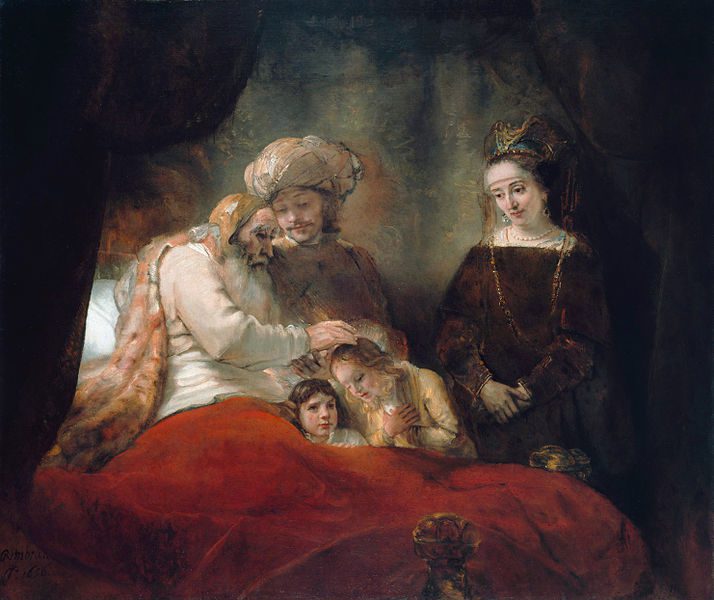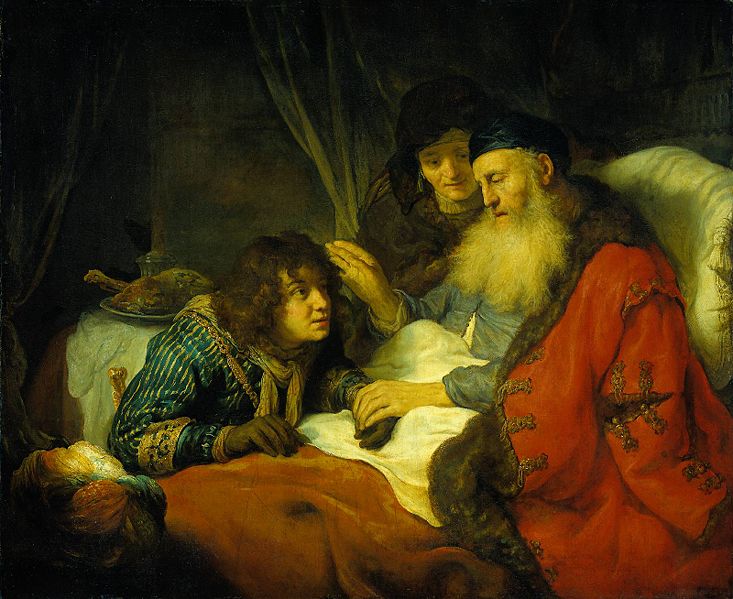
Wikimedia Commons public domain image
Slightly more than four years ago, I posted two back-to-back blog entries about an experience that made a deep impression on me and that, consequently, has remained with me for many decades, well into my current state of advanced geezerly old age. It was that important to me. I reproduce the two blog entries here, unchanged:
Many, many years ago, before my mission, somewhere around 1970-1971 when I was a freshman at BYU, I began to attend the regular (weekly? monthly?) Sunday evening meetings somewhere in Provo of a group that, if I’m not mistaken, was known simply as “The Group.” It was, I think, loosely intended to help people coming into activity in the Church from drug backgrounds, or something like that. I really enjoyed its meetings because they were so unconventionally Mormon, and perhaps because something in the atmosphere of the discussions was reminiscent to me of my upbringing in 1960s California. I found the meetings exciting; they were a high point of my first period of residence in Utah Valley.
Anyway, on one of those nights, we had a speaker who told a story that has stayed with me ever since. (I would be hard pressed to recall anything else very specific from the meetings, but this was different.)
He was an elderly man. I was seventeen or eighteen, of course, so just about everybody above thirty seemed elderly to me in those days, but I think that he was around ninety years old. Obviously, he’s long gone by now.
He was an ordained patriarch, and that’s where the story comes in.
He told of being ordained a patriarch. He was shocked and intimidated by the calling. He had, if I’m remembering correctly, never even received his own patriarchal blessing, and there were no manuals or instructions.
For a lengthy period of time, though, nobody asked him for a blessing. So he began to think that maybe this wouldn’t be so bad, after all. Maybe he would have the honor of being a patriarch without ever actually needing to give a blessing.
But then a boy in his stake — which I vaguely think may have been out somewhere in rural Utah; for some reason, the southeastern part of the state sticks in my mind, though I may be wrong on that — made an appointment to receive a patriarchal blessing under his hands.
He was terrified. He wasn’t sure what to do or that he could do it.
He began to study the scriptures, in Genesis and elsewhere, that would give him some sense of what he was to do and what a patriarchal blessing should be like.
In the end, he actually wrote a “blessing” out and memorized it, so that he would be ready when the boy came.
When the time arrived, he put his hands on the boy’s head and was just about to begin reciting the “blessing” that he had prepared and memorized.
But then he felt impelled to open his eyes.
And here’s the crucial part:
On the wall opposite him, he saw words, written in light. He sensed that he was to read them aloud. As he read a sentence or a phrase, it would disappear and be replaced by another one.
In the end, he had read off a complete patriarchal blessing — entirely different from the one that he had written out.
This, he said, had never happened to him again. But he didn’t need it to happen again. He knew that the Lord would sustain him and that he had no cause to fear or to be concerned.
Well, perhaps you can understand why that story impressed me so deeply.
The trouble is that I’ve entirely forgotten the name of the speaker. I’ve wanted to find it out for many years, but I have no idea how to do so. Curiously, again many years ago but after I had moved back to Utah and joined the BYU faculty, I came across something that made me exclaim “That’s him!” I told myself that I needed to make a note of his name. But, incredibly, I didn’t do it. And now I can’t even remember what it was that I had found, let alone how to find it again.
If this story or this person rings a bell with anybody out there, though, I would love to learn more about him and, if possible, about it.
For one thing, the idea of the words of light appearing, and then disappearing to be replaced, reminds me very much of some accounts (e.g., David Whitmer’s) of the translation of the Book of Mormon.
But it’s an interesting account in its own right. And I’ve remembered it for decades.
Help would be greatly appreciated.

Wikimedia Commons public domain image
Yesterday, in a blog entry titled “Needing help with a memory,” I mentioned a story that I had heard very nearly half a century ago — I’m that old! — and that impressed me so deeply that I’ve remembered it and often thought about it ever since. The trouble is that I don’t recall the name of the man who told it, and I would like to solidify it in my mind and to nail down the details.
I appealed to the readers of this blog for help, and I’m very grateful that several of them were willing and in a position to step forward. (Sometimes, the internet really is wonderful. I’ve wondered about this episode for decades.)
A reader who goes by the name of Ryan asked,
Could it be Urvin Gee (1881-1978)? His photo is here:
https://www.findagrave.com/memorial/13833059/urvin-gee
He then added this important item:
A quote and citation from 65 Questions and Answers About Patriarchal Blessings by Alonzo L. Gaskill:
“I began to repeat the introductory sentence. . . . While I was doing this, although my eyes were closed, I felt that I was looking at a large placard on which was printed part of the blessing. I would read it and new words would appear. This happened a number of times. When no more words appeared I closed with an appropriate sentence.” [Urvin Gee, cited in Gayla Wise, The Power of Your Patriarchal Blessing (Provo, UT: Spring Creek, 2007), 78.]
His age would be about right. Also, the 1940 census has an Urvin Gee living in Moroni.
The story is very similar to my half-century old recollection. It’s true that neither the name Urvin Gee nor his photograph rings a bell in my memory, but that doesn’t surprise me. I really can’t recall the speaker’s name nor what he looked like, except that he was old and white-haired.
Urvin Gee appears to have served a mission in England as a young man — I’m grateful to a reader named Jon who provided that reference to me — where he seems to have finished up as the president of the Grimsby “conference” of the Church and from which he apparently returned on the S.S. Arabic. (See this, in the Millennial Star.) Grimsby is a large English coastal town in North East Lincolnshire. (Its name immediately reveals its Viking heritage.)
Incidentally, I’ve long been particularly aware of the name of the ocean liner S.S. Arabic, which served from its launch in 1903 until its sinking by the German submarine SM U-24 on 19 August 1915, not only because of its amusing echo of my academic field but because the Arabic was the ship that brought my wife’s German-born grandfather across the Atlantic to the United States.)
Urvin Gee seems to be an excellent candidate for the speaker that I remember.
However, Charles Dike has suggested a plausible alternative candidate:
Heber G. Jacobs was a patriarch serving the 1st stake at BYU in 1974. As I recall he told me a story about seeing a parchment with the blessing on it appear to him the first time he gave a patriarchal blessing. His language was not sophisticated by any means. He was quite old when he gave me my blessing. I think he was in his early 80’s.
As Ryan points out, the story that I recall may be related to, or identical with, a story to which President Boyd K. Packer alluded during a January 2005 Worldwide Leadership Training Meeting:
https://www.lds.org/topics/patriarchal-blessings/teachings/the-office-of-patriarch?lang=eng&old=true
And, again, Ryan reminds me that the story to which Elder Packer refers in that speech seems also to be the account mentioned by the Congolese patriarch Laurent Clément Shambuyi Biaya Katembwe in his comments on the subject “What is the role of revelation in patriarchal blessings? (on the Interpreter Foundation website under the more general heading of “Laurent Clément Shambuyi Biaya Katembwe — What is a patriarchal blessing?”).
I’m grateful to those who’ve been so helpful on this subject.












